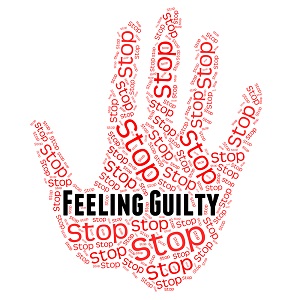 Has there ever been a time when you needed to have some skill when it came to offering an apology? Have you ever been insensitive to someone else’s sentiments without realizing it at the time?
Has there ever been a time when you needed to have some skill when it came to offering an apology? Have you ever been insensitive to someone else’s sentiments without realizing it at the time?
Maybe you made a snide remark taken the wrong way and perceived as malicious.
By the time most of us have reached adulthood, we have likely already done or said a great deal that warrants an apology.
However, it takes expertise to deliver an apology that comes from the heart and helps open the road for improved ties.
Do you feel like you owe an apology to someone in particular? Before you go chat with the person, you might find it helpful to have a few suggestions pointed out to you.
Check out these methods to make your future apologies a piece of art, even if you can’t think of anything for which you need to apologize.
Offering an Apology When You Have Hurt Someone
You come to the painful realization that you have said or done something harmful.
Recognizing that you’ve done anything that has caused someone else physical or emotional suffering is the first step in apologizing for any wrongdoing, just as it is the first step in repairing any error.
People will strike out at us occasionally to communicate how hurt they feel. Others pull away and become more reticent.
The best technique to start figuring out what’s going on is to inquire about it by asking questions.
If you have a close friend or loved one who you think could be upset about something, it might not hurt to ask them directly. If you have any inkling, you might know what the problem is.
Give Them Time if They Don’t Want to Hear Your Apology
 Remember that they are within their right to choose not to tell you. If you’ve been polite and asked them once or twice, but they still haven’t engaged with you, let them know that you’d be pleased to talk if or when they’re ready to do so at any point in the future.
Remember that they are within their right to choose not to tell you. If you’ve been polite and asked them once or twice, but they still haven’t engaged with you, let them know that you’d be pleased to talk if or when they’re ready to do so at any point in the future.
Then you should allow them some room to breathe. While they work through their emotions, you have time to reflect on how your words and actions have affected them.
You may clearly understand your role in the scene very soon. After you have reached the point where you can describe the part you played precisely, you are finally prepared to apologize.
Finding the Words When Offering an Apology
Next, give some thought to how you should word your apology. If you truly feel sorry for someone or something, it won’t be hard to find the words to express it.
Asking yourself, “What do I want to say?” is an excellent place to start.
The search for the appropriate words has two objectives. The first step is to let people know you are sorry for what you have done or said.
The second objective, which is frequently disregarded, is to make a solemn oath that you will never again engage in unpleasant behavior or make comments.
In your apologies, don’t bother trying to justify or explain away your behavior in any way. Those who try to justify their harmful actions give the impression that they are attempting to shield themselves from criticism.
Your apology should focus on the suffering inflicted upon them rather than the reasoning behind your conduct.
4 Steps to a Great Apology Video:
Effectively Communicate Your Regret
You are now able to convey the emotions you are experiencing verbally. Apologies are best made in person.
You should select a comfortable situation for both of you, make direct eye contact with the other person, and then tell them that you have something important to discuss.
Make your apology known while utilizing the proper tone of voice. Try to stay away from lengthy and drawn-out excuses.
Keep things simple and to the point. Your tone should convey the seriousness that you feel. In most situations, humor is not required and is somewhat frowned upon.
Listen to What the Other Person is Saying
You should get ready for any response your friend might give. It is of the utmost significance that you pay attention to any comments or queries your friend may have regarding your earlier statements.
Pay close attention to what your friend is saying if they are furious against you or continue questioning your motives in what you first said or did.
Any harsh words are likely the result of hurt sentiments on their friend’s behalf. After that, sincerely restate your apology to the person.
Final Thoughts:
It takes considerable experience and expertise to craft a creative apology. However, if you take the time to follow the simple steps outlined here, you will be well on your way to repairing the damage done to your relationship.
And you’ll have a more favorable opinion of yourself as a result!





